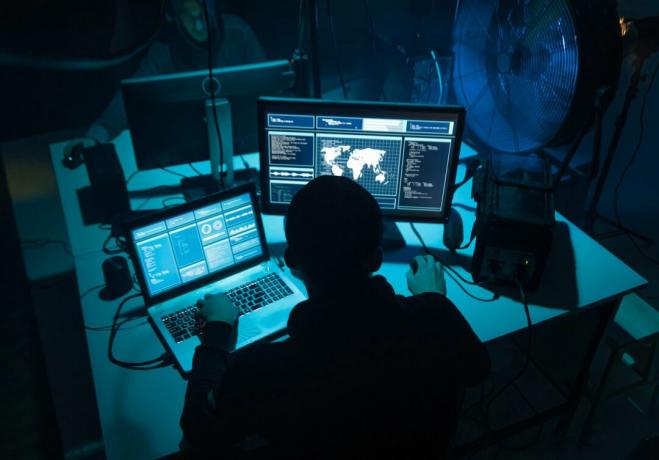
Today's lovely technological world brings with it a constant fear: the often harmful hacker attacks.
In these attacks, cowardly cybercriminals take advantage of loopholes in online security systems to steal data, often from innocent people, in order to carry out financial scams.
see more
City in Minas Gerais makes history with 44.8 ºC, record temperature…
The collapse of the agreement to connect cell phones via satellite
Generally, malicious hackers use maneuvers to break source codes and other encryption systems. However, this is changing.
According to recent research, cybercriminals are using systems equipped with Artificial Intelligence to “listen” to people as they type, thus deciphering passwords for banking applications, social media profiles, etc. others.

(Image: disclosure)
Around the world, authorities are concerned and are looking for compensation for the criminal use of Artificial intelligence.
Until the not too distant past, for a device to be digitally tampered with, it was necessary to installation of malicious software, commonly through suspicious links and hacking processes similar.
Now, Artificial Intelligence is being used to assist in scams carried out remotely, without the need to infect any device.
To get an idea of the danger, according to the study cited, hackers are using Artificial Intelligence systems in so-called SCAs, which are side-channel acoustic attacks.
With this tool, the AI used by criminals deciphers the sounds of the keys and measures the amount of electricity used on each click, indicating which keys are being used and offering possible combinations produced by the typing.
Then, hackers start experimenting with password guesses until they find the correct password and break into victims' accounts.
This malicious tactic is used during video or audio calling sessions that are monitored by cybercriminals.
With the advent of the pandemic and the increased need for online meetings, the focus of cybercriminals turned to video conferencing.
In addition to the AI mentioned above, hackers use other devices and tools that are also capable of “listening” to the sound of keyboards during these remote meetings.
As an example, it is common to detect intrusions in calls via Voice Over Internet Protocol (VoIP) and with the use of smartwatches.
Unfortunately, even purchasing silent keyboards doesn't solve this problem. Furthermore, participating in online meetings via smartphones is useless since online criminals can also track mobile device signals.
To protect themselves against hackers, users must keep their devices up to date with backups security and constantly exchange passwords and information that give access to bank accounts and data personal.
The other necessary measures are:
Maintain sensitive applications with active two-factor authentication.
Use strong, difficult-to-crack passwords.
Turn on antivirus and intrusion alerts.
Activate the alert for new logins.
Be careful with the permissions you grant on your devices, especially when it comes to software that uses Artificial Intelligence.
Graduated in History and Human Resources Technology. Passionate about writing, today he lives the dream of working professionally as a Web Content Writer, writing articles in several different niches and formats.
